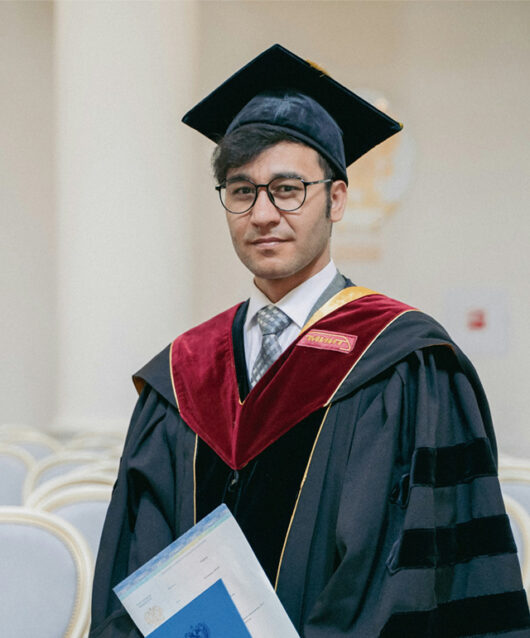EB-2 (Second Preference) Visa Category
The EB-2 employment visa category applies to the following groups of people:
- Professionals who have an advanced degree beyond a bachelor's degree. Alternatively, they should have a bachelor's degree and at least five years of progressive experience in their field
- Individuals with exceptional ability or expertise above the ordinary in the sciences, arts, or business.
Applicants in this category need a labor certification and a job offer from a U.S. employer to apply for a green card. The employer would, in turn, need to file Form I-140 with the USCIS on their behalf.
The requirement of a labor certification and a job offer from a U.S. employer can be waived if the petitioner demonstrates that granting the EB-2 petition would be in the national interest of the United States. One reason USCIS may grant the national interest waiver is because a physician has worked or agrees to work for a period of time in a designated underserved area.
Advanced Degree Position
 An advanced degree is any U.S. academic or professional degree or a foreign equivalent degree above that of baccalaureate. A U.S. baccalaureate degree or a foreign equivalent degree followed by at least 5 years of progressive experience in the specialty is considered the equivalent of a master’s degree. If a doctoral degree is customarily required by the specialty, the beneficiary must have a U.S. doctorate or a foreign equivalent degree. A beneficiary can satisfy the advanced degree requirement by holding either a U.S. master’s degree or higher or a foreign degree evaluated to be the equivalent of a U.S. master’s degree or higher; or U.S. bachelor’s degree, or a foreign degree evaluated to be the equivalent of a U.S. bachelor’s degree, plus 5 years of progressive, post-degree work experience.
An advanced degree is any U.S. academic or professional degree or a foreign equivalent degree above that of baccalaureate. A U.S. baccalaureate degree or a foreign equivalent degree followed by at least 5 years of progressive experience in the specialty is considered the equivalent of a master’s degree. If a doctoral degree is customarily required by the specialty, the beneficiary must have a U.S. doctorate or a foreign equivalent degree. A beneficiary can satisfy the advanced degree requirement by holding either a U.S. master’s degree or higher or a foreign degree evaluated to be the equivalent of a U.S. master’s degree or higher; or U.S. bachelor’s degree, or a foreign degree evaluated to be the equivalent of a U.S. bachelor’s degree, plus 5 years of progressive, post-degree work experience.
A beneficiary who does not possess at least a U.S. bachelor’s degree or a foreign equivalent degree is ineligible for this classification.
Mere possession of an advanced degree or its equivalent is not sufficient for establishing a beneficiary’s eligibility for this classification. The petitioner must also demonstrate that the position certified in the underlying permanent labor certification application or set forth on the Schedule A application requires a professional holding an advanced degree or the equivalent. The petitioner must demonstrate that the position, and the industry as a whole, normally requires that the position be filled by a person holding an advanced degree.
Where the position requires multiple credentials combined with experience, the issue is not whether a combination of more than one of the foreign degrees or credentials is comparable to a single U.S. bachelor’s degree or an advanced degree, but rather that the minimum requirements for the position in the permanent labor certification meet the definition of an advanced degree.
Exceptional Ability
The term exceptional ability is defined as a degree of expertise significantly above that ordinarily encountered in the sciences, arts, or business, and is a standard lower than the standard for extraordinary ability classification.
A beneficiary may qualify for the exceptional ability visa preference classification if he or she has exceptional ability in the sciences, arts, or business; he or she will substantially benefit the national economy, cultural or educational interests, or welfare of the United States in the future; and his or her services in one of those fields are sought by an employer in the United States.
The initial evidence must include at least three of the following six types of evidence listed in the regulations:
- An official academic record showing that the beneficiary has a degree, diploma, certificate, or similar award from a college, university, school, or other institution of learning relating to the area of exceptional ability;
- Evidence in the form of letter(s) from current or former employer(s) showing that the beneficiary has at least 10 years of full-time experience in the occupation in which he or she is being sought;
- A license to practice the profession or certification for a particular profession or occupation;
- Evidence that the beneficiary has commanded a salary or other remuneration for services that demonstrates exceptional ability. (To satisfy this criterion, the evidence must show that the beneficiary has commanded a salary or remuneration for services that is indicative of his or her claimed exceptional ability relative to others working in the field);
- Evidence of membership in professional associations; and
- Evidence of recognition for achievements and significant contributions to the industry or field by peers, governmental entities, or professional or business organizations.
In some cases, evidence relevant to one criterion may be relevant to other criteria.
Schedule A, Group II permanent labor certification for persons of "exceptional ability in the sciences or arts" is distinct from classification as a person of "exceptional ability in the sciences, arts, professions, or business.” Under the U.S. Department of Labor (DOL)'s regulations, an employer seeking permanent labor certification on behalf of a person of "exceptional ability in the sciences or arts" may apply directly to USCIS for Schedule A, Group II permanent labor certification instead of applying to DOL for issuance of a permanent labor certification.
Professional Athletes
 Professional athletes may qualify for exceptional ability classification in the arts. Professional athlete means a person who is employed as an athlete by a team that is a member of an association of six or more professional sports teams whose total combined revenues exceed $10,000,000 per year, if the association governs the conduct of its members and regulates the contests and exhibitions in which its member teams regularly engage; or any minor league team that is affiliated with such an association
Professional athletes may qualify for exceptional ability classification in the arts. Professional athlete means a person who is employed as an athlete by a team that is a member of an association of six or more professional sports teams whose total combined revenues exceed $10,000,000 per year, if the association governs the conduct of its members and regulates the contests and exhibitions in which its member teams regularly engage; or any minor league team that is affiliated with such an association
The fact that the athlete has signed a contract to play for a major league team may not be sufficient to establish exceptional ability as a professional athlete.
A petition for classification of a professional athlete is supported by an underlying permanent labor certification filed on the beneficiary’s behalf, which remains valid even if the athlete changes employers, so long as the new employer is a team in the same sport as the team that filed the petition. An approved permanent labor certification submitted on behalf of a professional athlete does not prove that the beneficiary qualifies as an athlete of exceptional ability. USCIS looks for evidence of exceptional ability beyond the mere existence of a contract with a major league team or an approved permanent labor certification.
National Interest Waiver
To establish eligibility, the petitioner has the burden of demonstrating that:
- The person qualifies as either a member of the professions holding an advanced degree or as a person of exceptional ability; and
- The waiver of the job offer requirement, and thus, the labor certification requirement, is in the “national interest.”
USCIS may grant a national interest waiver as a matter of discretion if the petitioner demonstrates eligibility by a preponderance of the evidence, based on the following three prongs:
- The person’s proposed endeavor has both substantial merit and national importance;
- The person is well positioned to advance the proposed endeavor; and
- On balance, it would be beneficial to the United States to waive the job offer and thus the permanent labor certification requirements.
When reviewing the proposed endeavor, officers determine whether the evidence presented demonstrates, by a preponderance of the evidence, the proposed endeavor has substantial merit and national importance. The endeavor’s merit may be demonstrated in areas including, but not limited to, business, entrepreneurship, science, technology, culture, health, or education. USCIS consider evidence of the endeavor’s potential significant economic impact, but “merit may be established without immediate or quantifiable economic impact” and “endeavors related to research, pure science, and the furtherance of human knowledge may qualify, whether or not the potential accomplishments in those fields are likely to translate into economic benefits for the United States.” USCIS considers the potential prospective impact. If person’s proposed endeavor has the significant potential to broadly enhance societal welfare or cultural or artistic enrichment, or to contribute to the advancement of a valuable technology or field of study, it may rise to the level of national importance.
Determining whether the person is well positioned to advance the endeavor, USCIS considers factors including, but not limited to:
- The person’s education, skills, knowledge, and record of success in related or similar efforts;
- A model or plan that the person developed, or played a significant role in developing, for future activities related to the proposed endeavor;
- Any progress towards achieving the proposed endeavor; and
- The interest or support garnered by the person from potential customers, users, investors, or other relevant entities or persons.
Once USCIS finds that petitioner has met the first two prongs, they proceed with the analysis of the third prong. For the third prong, an officer assesses whether the person’s endeavor and the person being well-positioned to advance that endeavor, taken together, provide benefits to the nation such that a waiver of the labor certification requirement outweighs the benefits that ordinarily flow from that requirement. In establishing eligibility for the third prong, petitioners may submit evidence relating to one or more of the following factors:
- The impracticality of a labor certification application;
- The benefit to the United States from the prospective noncitizen’s contributions, even if other U.S. workers were also available; and
- The national interest in the person’s contributions is sufficiently urgent, such as U.S. competitiveness in STEM fields.
More specific considerations may include:
- Whether urgency, such as public health or safety, warrants foregoing the labor certification process;
- Whether the labor certification process may prevent an employer from hiring a person with unique knowledge or skills exceeding the minimum requirements standard for that occupation, which cannot be appropriately captured by the labor certification;
- Whether the person’s endeavor has the potential to generate considerable revenue consistent, for example, with economic revitalization; and
- Whether the person’s endeavor may lead to potential job creation.
A petition filed with a request for a national interest waiver on behalf of a person does not need to be supported by a job offer; therefore, the person may file as a self-petitioner. The petitioner may submit either the Form ETA 750B or Form ETA 9089.
Considerations for Persons with Advanced Degrees in Science, Technology, Engineering, or Mathematics (STEM) Fields
There are specific evidentiary considerations relating to STEM degrees and fields, although the analysis is the same regardless of endeavor. USCIS recognizes the importance of progress in STEM fields and the essential role of persons with advanced STEM degrees in fostering this progress, especially in focused critical and emerging technologies or other STEM areas important to U.S. competitiveness or national security. With respect to the first prong, as in all cases, the evidence must demonstrate that a STEM endeavor has both substantial merit and national importance. For the second prong, as mentioned above, the person’s education and skillset are relevant to whether the person is well positioned to advance the endeavor. Finally, with respect to the third prong, it is the petitioner’s burden to establish that factors in favor of granting the waiver outweigh those that support the requirement of a job offer and thus a labor certification. When evaluating the third prong and whether the United States may benefit from the person’s entry, regardless of whether other U.S. workers are available (as well as other factors relating to prong three discussed above, such as urgency), USCIS considers the following combination of facts contained in the record to be a strong positive factor:
- The person possesses an advanced STEM degree, particularly a Ph.D.;
- The person will be engaged in work furthering a critical and emerging technology or other STEM area important to U.S. competitiveness; and
- The person is well positioned to advance the proposed STEM endeavor of national importance.
The benefit is especially important where the endeavor has the potential to support U.S. national security or enhance U.S. economic competitiveness, or when the petition is supported by letters from interested U.S. government agencies.
Physician National Interest Waiver
USCIS may grant the national interest waiver because a physician has worked or agrees to work for a period of time in a designated underserved area. To be eligible physician:
- must work full-time in a clinical practice (usually the required period of service is 5 years);
- must work in a primary care (such as a general practitioner, family practice petitioner, general internist, pediatrician, obstetrician/gynecologist, or psychiatrist) or be a specialty physician;
- must serve either in a Health Professional Shortage Area (HPSA), Mental Health Professional Area (MHPSA – for psychiatrists only), a Medically Underserved Area (MUA), or a Veterans Affairs facility, or for specialists in a Physician Scarcity Area (PSA); and,
- must obtain a statement (attestation) from a federal agency or a state department of health that has knowledge of your qualifications as a physician and that states your work is in the public interest.
Experience You Can Trust
Unlock your potential in the USA with Chacko Law Firm's expert guidance on EB-2 Visas. Achieve your American dream with our specialized services in advanced degree and exceptional ability immigration. Let us navigate the complexities for you.

